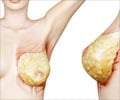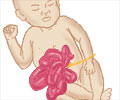Research indicates that self-epilation is an acceptable alternative to surgery in patients with mild trachomatous trichiasis

These findings from a large trial involving 1300 people in Ethiopia (the country with the highest rates of trachoma in the world) and published in this week's PLoS Medicine, leave the authors, led by Matthew Burton from the London School of Hygiene and Tropical Medicine, to conclude that although surgery should be performed for trachomatous trichiasis whenever possible, epilation should be considered when surgery is not available or is declined by the patient: in reality, a large majority of the approximately 8 million people who have trachomatous trichiasis are not receiving surgical treatment and given the enormous backlog of untreated cases, surgery is unlikely to be available to very large numbers of people living with trichiasis for at least the medium term.
The authors say "Where surgery is available and patients are willing to accept it, surgery should be performed, as the disease tends to progress, albeit quite slowly. However, we suggest that for individuals with minor trichiasis (who represent about half of all those with trachomatous trichiasis) epilation should be considered where surgery is either not available or declined by the patient."
In another study published in this week's PLoS Medicine, the same authors found that if surgery for trichiasis is performed, using absorbable sutures is as effective as silk sutures but has the added advantage of eliminating the need for patients to return to the clinic (often having to travel great distances) soon after their operation to have their sutures removed. The authors therefore suggest that trachoma control programs should now consider the potential logistical advantages of using absorbable sutures rather than silk sutures during trichiasis surgery despite the lack of any apparent clinical difference between the two suture types.
The authors say: "The logistical advantages of using absorbable sutures should be taken into consideration when considering the choice of suture material."
Advertisement









